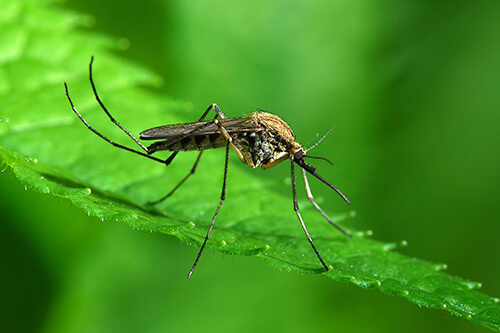Nearly everyone is affected by mosquitoes during the warmer months of the year. These pests swarm at outdoor events and breed prolifically in stagnant water–from bird baths to discarded tires–even puddles from the latest rainfall. Certain land features, such as swamps, reservoirs and retention ponds are virtual breeding grounds for mosquitoes. And, all it takes is one tenacious pest to infiltrate your home and make everyone inside miserable.
Contrary to popular belief, mosquitoes do not require blood to live, as they actually feed on nectar. The males are not blood drinkers; however, the female of the species requires it in order to lay eggs. Once she lays her eggs, a female mosquito will seek more blood in order to produce more young. She will continue this cycle during her short life span of about two weeks.
Though some may consider them an unpleasant nuisance, mosquitoes are responsible for more human deaths than any other insect. Mosquitoes feed off both humans and animals, thereby easily infecting host upon host.
A single mosquito bite can transmit diseases such as malaria, dengue fever, and encephalitis. The well-known and well-publicized West Nile Virus (an Encephalitis virus) first appeared in the Western hemisphere in 1999 and quickly spread to infect people in every state in the US.
As a result, mosquito control is vitally important to human health and well-being. There are many varieties of mosquitoes, some of which carry more deadly diseases than others. Mosquito insecticide is often used on a wide-scale basis to combat mosquitoes and is generally very effective. If your property is prone to attracting and breeding a mosquito population, contact a professional pest control company to assess and manage the situation.
